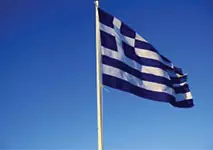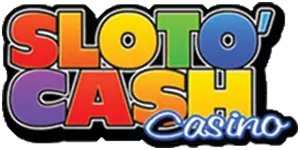Greek Casinos
Looking for trusted online casinos in Greece? See our expert shortlist of Greece-friendly casino sites with reliable payments and support.
Online gambling has been legal in Greece since 2012, when Law 4002/2011 officially came into effect, introducing a licensing system based on public tenders. This legislation also enabled remote gambling operators licensed in EEA member states to provide their services in the country with interim licenses during a transition period that ended with the passage of Law 4635/2019. The latter overhauled the existing legislation, allowing interested operators to apply for fixed-term, renewable permits to provide remote gambling services to Greek residents.
The Hellenic Gaming Commission (HGC) is tasked with the licensing, oversight, and taxation of the local iGaming industry. The regulatory body issues two types of permits under the new licensing framework. Type 1 licenses are required for the legal provision of remote sports betting, whereas Type 2 licenses cover peer-to-peer poker and online casino games, including slots, table games, and live-dealer products. As many as 15 operators are currently authorized to legally serve casino players from the Greek market.
Due to the limited range of options, many locals prefer to take their action to offshore online casinos licensed outside the country. In this article, we explain everything about remote gambling regulations in Greece and help you make an informed choice with an unbiased ranking of the best online casinos welcoming players from the Greek market. Readers will also find comprehensive information about the banking methods local players can use to deposit, along with a breakdown of the most popular casino games and live-dealer products commonly available to them.
Greece’s Legal Stance on Gambling
 When the popularity of interactive gambling increased dramatically at the turn of the 21st century, online casinos were met with such strong opposition from the Greek government that the latter went as far as to enforce a ban on all forms of web-based real-money gaming. Interestingly enough, this piece of legislation failed to adequately differentiate between online video games and interactive or land-based gambling, which led to console games being prohibited from internet cafés throughout the country, along with online casino games.
When the popularity of interactive gambling increased dramatically at the turn of the 21st century, online casinos were met with such strong opposition from the Greek government that the latter went as far as to enforce a ban on all forms of web-based real-money gaming. Interestingly enough, this piece of legislation failed to adequately differentiate between online video games and interactive or land-based gambling, which led to console games being prohibited from internet cafés throughout the country, along with online casino games.
Following the financial crisis the country was struggling with, the Greek government decided to soften its stance on the gambling sector and passed the Gambling Act of 2011. The goal was to generate additional profits through the taxation and licensing of foreign gambling operators, with big names like William Hill and Betfair being among the first to enter the Greek market with interim licenses. This was followed by provisions for setting up a permanent licensing system for both offshore and domestic operators alike.
Sadly, the intention to establish such a system was stalled only a year later, in 2012, by the country’s Ministry of Finance. Instead of opening the market to foreign competition, the Greek authorities ended up monopolizing the interactive gambling sector instead. The result was that OPAP (which is the Greek Organization of Football Prognostics) acquired a monopoly on all online gambling operations in the country.
Meanwhile, the foreign operators that were granted temporary licenses were politely asked by the government to wind down their services on the local market. Some operators opted to leave Greece right away because their temporary licenses would not be renewed upon expiry, while others decided to wait and see whether the legal gambling environment would improve.
These restrictive regulations led to various accusations of protectionism and of violating the free-trade laws in the European Union. Things escalated rather quickly and, only a year later, in 2013, the European Commission intervened and ruled that the restrictive policies of monopolizing the gambling market in Greece were indeed in violation of EU laws. The result was the Greek government coming up with several proposals for amending its online gambling legislation.
Nevertheless, Greek legislators spoke strongly against games running on Random Number Generators. Their argument was that such games should not be made readily available to players from the country because they are “highly addictive.” This stance was rather hypocritical, considering the fact that OPAP was issued a license allowing it to operate over 30,000 land-based video lottery terminals in the country.
All of this led to the liberalization of the Greek gambling market coming to a standstill. In 2016, the Greek authorities announced they were planning to open the market to foreign competition in order to adapt Greece’s gambling regulations to EU laws. However, the government has yet to release an official list of interactive gambling operators that could potentially receive local licenses. Until then, the market continues to be under-regulated and restrictive.
Meanwhile, more than twenty interactive gambling websites continue to operate under the interim licenses they were granted after the enforcement of the Gambling Act in 2011, with PokerStars being one of the most popular options for players from the country. Under pressure from the European Commission, Greek officials have decided in favor of granting permanent licenses to offshore gambling operators. The new permanent licenses are yet to be issued, however, with OPAP still exercising its monopoly in this sector.
Many players from Greece actually opt to register at foreign web-based gambling operators that have not acquired a license from local authorities. Because the liberalization of the market is expected to take place soon, many foreign online casinos have already started accepting Greek players.
Most Popular Greek Online Casinos
Hunting for reliable online casinos that accept real-money play from Greece? You’ve come to the right place. Our experienced reviewers have done all the heavy lifting to provide you with this diligently curated list of the top gambling sites that welcome Greek players.
Our selection is based on multiple evaluation criteria, including licensing and regulation, game selection and software providers, withdrawal processing timeframes, accepted banking options, and support response times. Each recommended casino comes with a brief overview and a breakdown of its pros and cons to help you make the right pick.
-
Bizzo Casino
Bizzo Casino invites Greek players to immerse themselves in a gaming paradise filled with an impressive collection sourced from over a dozen top-tier software developers, including household names like Pragmatic Play and Yggdrasil Gaming. Whether it’s through a desktop or on the move with mobile devices, players are ensured a seamless and engaging gaming experience, all under the reliable licensure of the Government of Curacao.
Website bizzocasino.com Licenses Curacao Year Established 2021 Support Channels support@bizzocasino.com Available Bonus First Deposit Bonus: 100% up to €100 + 100 Free Spins Compatibility Android, Apple, Windows Deposit Methods Visa, MasterCard, Skrill, Neteller, Jeton, Payz, Perfect Money, Interac, AstroPay Card, eZeeWallet, MiFinity, Paysafecard, Flexepin, CashtoCode, Bitcoin, Litecoin, Ethereum Withdraw methods Visa, MasterCard, Skrill, Neteller, Bank Wire Transfer, Jeton Wallet, Perfect Money, Payz, eZeeWallet, MiFinity, Bitcoin, Litecoin, Ethereum The casino’s extensive slot catalog promises to cater to every taste and preference, featuring an array of themes, special features, and volatility levels. Greek enthusiasts can navigate this vast ocean of choices with ease, thanks to intuitive filtering options. Highlighted favorites such as Wolf Gold Slot and Sakura Fortune Slot illustrate the rich diversity and quality of Bizzo Casino’s offerings.
Beyond slots, Bizzo Casino doesn’t disappoint, presenting a broad selection of table games and video poker options, each with unique variations to keep gameplay exciting. The live casino section, powered by giants like Evolution Gaming, brings the authentic casino atmosphere directly to players, complete with professional dealers and live interactions, ensuring Greek players have access to a comprehensive and thrilling online casino experience.
Pros- Tournaments with attractive prize pools
- Multiple currencies
- High withdrawal limits
- Live dealer games
- Multilingual and multi-currency
Cons- Limited live chat languages
- High wire transfer minimum
- Game/provider restrictions by country
- Payment method restrictions
-
MrPacho Casino
At MrPacho Casino, enthusiasts from Greece and beyond are greeted with an array of gaming delights, boasting titles from a plethora of software developers, ensuring diversity and quality in their gaming experience. This casino offers a vibrant and animated interface, enhancing the user journey with lively menus and easy navigation, making every visit a fun and engaging experience.
Website mrpacho.com Licenses Curacao Year Established 2023 Support Channels support@mrpacho.com Available Bonus Welcome Bonus: 100% up to €500 + 200 Free Spins Compatibility Android, Apple, Windows Deposit Methods Visa, MasterCard, EPS, Klarna Instant Bank Transfer, Neteller, eZeeWallet, MiFinity, CashtoCode, Skrill, Rapid Transfer, Jeton, Bitcoin, Bitcoin Cash, Litecoin, Ethereum, Tether, Ripple, USD Coin, Dai, Pix, Transferencia Bancaria Local, AstroPay Card, Pay4Fun, Payz, Inovapay, MuchBetter, Bank Wire Transfer, Apple Pay Withdraw methods Visa, MasterCard, EPS, Klarna Instant Bank Transfer, Neteller, eZeeWallet, MiFinity, CashtoCode, Skrill, Rapid Transfer, Apple Pay, AstroPay Card, Bitcoin, Bitcoin Cash, Dai, Ethereum, Inovapay, Jeton Wallet, Litecoin, Pay4Fun, Pix, Payz, Ripple, Tether, Transferencia Bancaria Local, USD Coin Greek players will find MrPacho Casino’s platform especially accommodating, with its multilingual support and a wide range of payment methods, including cryptocurrencies, catering to a modern audience’s needs. The VIP program and exclusive casino shop add an extra layer of excitement, rewarding players’ loyalty with cashback, higher withdrawal limits, and personal account management, showcasing the casino’s commitment to player satisfaction.
Delivering a comprehensive game collection that spans online slots, table games, live casino action, and unique exclusive titles, MrPacho Casino stands out for its commitment to offering something for every type of player. The integration of top game studios ensures a fresh and high-quality game selection, complemented by a responsible gaming environment that emphasizes player well-being, making it a top choice for players seeking a balanced and immersive online casino experience.
Pros- Impressive game selection
- Extensive payment options
- VIP Program & Casino Shop
- Wide player acceptance
- Diverse software providers
- 24/7 live chat
Cons- Non-VIP low withdrawal limits
- Country-specific bonus restrictions
- Skrill/Neteller bonus exclusion
-
Casombie Casino
Launched in 2021 and operated by Rabidi N.V., a well-established company within the online gambling realm, Casombie Casino delivers a distinctive gaming adventure to iGaming fans. Casombie Casino immerses Greek players in a thrilling universe with its unique zombie theme and engaging visuals, offering an unparalleled selection of games from over 40 renowned software providers, including Microgaming, Red Tiger Gaming, and Play’n GO. This ensures a diverse and engrossing gaming experience for all.
Website casombie.com Licenses Curacao Year Established 2021 Support Channels support@casombie.com Available Bonus Welcome Package: Up to €1,000 in 3 bonuses Compatibility Android, Apple, Windows Deposit Methods Visa, MasterCard, CashtoCode, Trustly, Skrill, Neteller, Paysafecard, Payz, Klarna Instant Bank Transfer, eZeeWallet Withdraw methods Visa, MasterCard, Bank Wire Transfer, Trustly, Skrill, Neteller, Payz, Paysafe Card The casino’s lobby is home to a vast array of slots, table games, and live dealer options. Greek players are invited to navigate through the undead-themed categories to discover their favorite games, all available directly via web and mobile browsers.
Beyond the eerie entertainment, Casombie Casino lavishes its Greek patrons with enticing bonuses, robust security measures, and 24/7 customer support. The promotions page offers a good mix of Welcome Offers, Weekly Cashback, Weekend offers, and Live Cashback bonuses. Casombie Casino rewards its VIP customers with a VIP Program, encompassing five different levels. This makes it not just a gaming site, but a fully immersive adventure into the post-apocalyptic world of wins and thrills.
Pros- Home to leading software companies
- Multiple payment options
- 24/7 live chat
- Mobile-friendly games
- Cryptocurrency support
- Wide variety of bonuses
Cons- Country restrictions
- Max daily withdrawal limit of 500 EUR
- Skrill/Neteller deposits ineligible for welcome bonus retrieval
-
My Empire Casino
My Empire Casino unfolds a world where Greek players can explore an extensive range of over 1,000 casino games, all powered by industry-leading software providers, including 1×2 Gaming, Big Time Gaming, Evolution Gaming, and Pragmatic Play, to name a few. This ensures a diverse gaming experience that caters to every player’s preferences.
Website myempire.com Licenses Curacao Year Established 2023 Support Channels support@myempire.com Available Bonus Up to €800 + 300 Free Spins in First 4 Bonuses Compatibility Android, Apple, Windows Deposit Methods Bank Wire Transfer, Mastercard, Skrill, Rapid Transfer, Neteller, MiFinity, eZeeWallet, Siru Mobile, Paysafecard, Apple Pay, Jeton, EPS, Klarna Instant Bank Transfer, CashtoCode, AstroPay Direct, Payz, Giropay, Interac, Pix Withdraw methods Bank Wire Transfer, Visa, Mastercard, Neteller, Skrill, AstroPay Direct, Payz, Pay4Fun, MiFinity, MuchBetter, CashtoCode, eZeeWallet, Jeton, Interac, Pix At the heart of My Empire Casino’s offerings lies a rich selection of live dealer games, where Greek enthusiasts can enjoy real-time blackjack, roulette, and baccarat. These games promise an immersive casino atmosphere, right from the comfort of home, thanks to high-quality streaming and interactive features.
Beyond gaming, My Empire Casino captivates players with its generous promotions and secure playing environment. Greek iGaming fans are welcomed with enticing bonuses and benefit from robust security measures, ensuring a safe and rewarding online casino journey.
Pros- Extensive range of game studios
- Diverse payment options
- 24/7 customer support
- Appealing site design
- Attractive welcome offer
Cons- Slower withdrawal process
- No withdrawals on weekends
- Regional restrictions apply
-
Legendplay Casino
Legendplay Casino, owned and operated by Rabidi N.V., showcases a plethora of casino games from a multitude of software providers, ensuring a rich and diverse gaming experience for Greek players. With a license from Curacao, the casino guarantees a secure and regulated environment for its enthusiasts.
Website legendplay.com Licenses Curacao Year Established 2022 Support Channels support@legendplay.com Available Bonus Welcome Package: Up to €1,000 in 3 bonuses Compatibility Android, Apple, Windows Deposit Methods Apple Pay, AstroPay Card, Bank Wire Transfer, Bitcoin, Bitcoin Cash, BLIK, CashtoCode, Dogecoin, EPS, Ethereum, eZeeWallet, Flexepin, Giropay, Interac, Klarna, Litecoin, MiFinity, MuchBetter, Neosurf, NETELLER, OXXO, Pay4Fun, PayID, Payz, Pix, Rapid Transfer, Revolut, Ripple, Siru Mobile, Skrill, SOFORT Banking, SPEI, STICPAY, Tether, USD Coin, Vega Wallet, Visa Credit Withdraw methods AstroPay Card, Bank Wire Transfer, Bitcoin, Bitcoin Cash, Dogecoin, Ethereum, eZeeWallet, Litecoin, MiFinity, MuchBetter, NETELLER, Pay4Fun, Payz, Pix, Rapid Transfer, Ripple, Skrill, STICPAY, Tether, USD Coin, Vega Wallet Greek players are welcomed into a world where the latest and most engaging online casino games meet user-friendly design for an optimal experience. Whether it is cutting-edge slots, live casino excitement, or sports betting action, Legendplay Casino promises to deliver with style and innovation, setting a high bar for new entrants in the online gambling arena.
Offering an array of games from renowned providers like Pragmatic Play and NetEnt, Legendplay Casino caters to every taste, featuring top picks, newly-released titles, and popular favorites. Greek players can navigate easily through the diverse selection, including live casino classics and thrilling jackpot slots, making Legendplay Casino a compelling choice for those seeking comprehensive and captivating online gambling experiences.
Pros- Accepts players globally
- Live dealer games available
- Extensive currency options
- Diverse payment methods
- Clear VIP program
Cons- Some bonuses have restrictions
- Certain provider restrictions
- Payment method limitations
The Greek Online Gambling Regulators
All forms of land-based gambling in Greece are considered legal and are regulated by the Hellenic Gambling Commission. Players at licensed brick-and-mortar venues are allowed to engage legally in a wide range of games, including staples like blackjack, roulette, craps, baccarat, and slots. As far as poker goes, land-based casinos in Greece are permitted to offer variants like 5-Card Stud, Texas Hold’em, 7-Card Stud, and Omaha. The Hellenic Gambling Commission is responsible for monitoring the land-based gambling market, performing various audits, and ensuring fair gaming and transparent conduct in the interest of Greek players.
Online gambling activities, on the other hand, fall within the remit of OPAP, which holds a monopoly over the entire interactive gaming market in the country. In order to obtain a local license, foreign gambling operators must be based in Greece. In other words, their servers should be located within the country’s borders and the websites should utilize the .gr domain, reserved exclusively for Greek players.
Taxes on Online Gambling in Greece
As is usually the case, all licensed gambling operators offering their services to players located in Greece are expected to pay taxes. It is precisely these excessive taxes that have driven a number of foreign operators from the Greek market. According to Greek legislation, all licensed casino operators must pay a flat tax of 35% of their gross revenue.
Since 34% of OPAP is owned by the state, the regulator is placed in a rather favorable position compared to foreign-based operators. Furthermore, there are no taxes on the winnings of players who gamble at OPAP-licensed establishments. The only exception to this rule applies when the profits exceed €100. Otherwise, all winnings are subject to a 10% tax.
The Future of Online Gambling in Greece
Greek authorities have already taken the first steps toward opening the country’s gambling market to foreign competition since more than twenty offshore casino providers are currently operating under interim licenses. However, the excessive taxes imposed on foreign gambling operators appear to be the biggest obstacle to market liberalization. Excessive taxation is precisely what might drive foreign companies away from Greece.
Furthermore, at the beginning of 2016 the Greek government decided to increase the existing tax on operators’ gross revenue from 30% to a flat rate of 35%, which led to speculation that OPAP had pushed for the increase in an attempt to deter foreign competition from applying for local licenses.
The country overhauled its gambling legislation in 2019 and opened its market to foreign operators looking to acquire fixed-term, renewable licenses from the Hellenic Gaming Commission. At the time of publication, only 15 or so companies are licensed by the local watchdog. Many others continue to service players from the Greek market with offshore licenses issued by other regulatory bodies.









